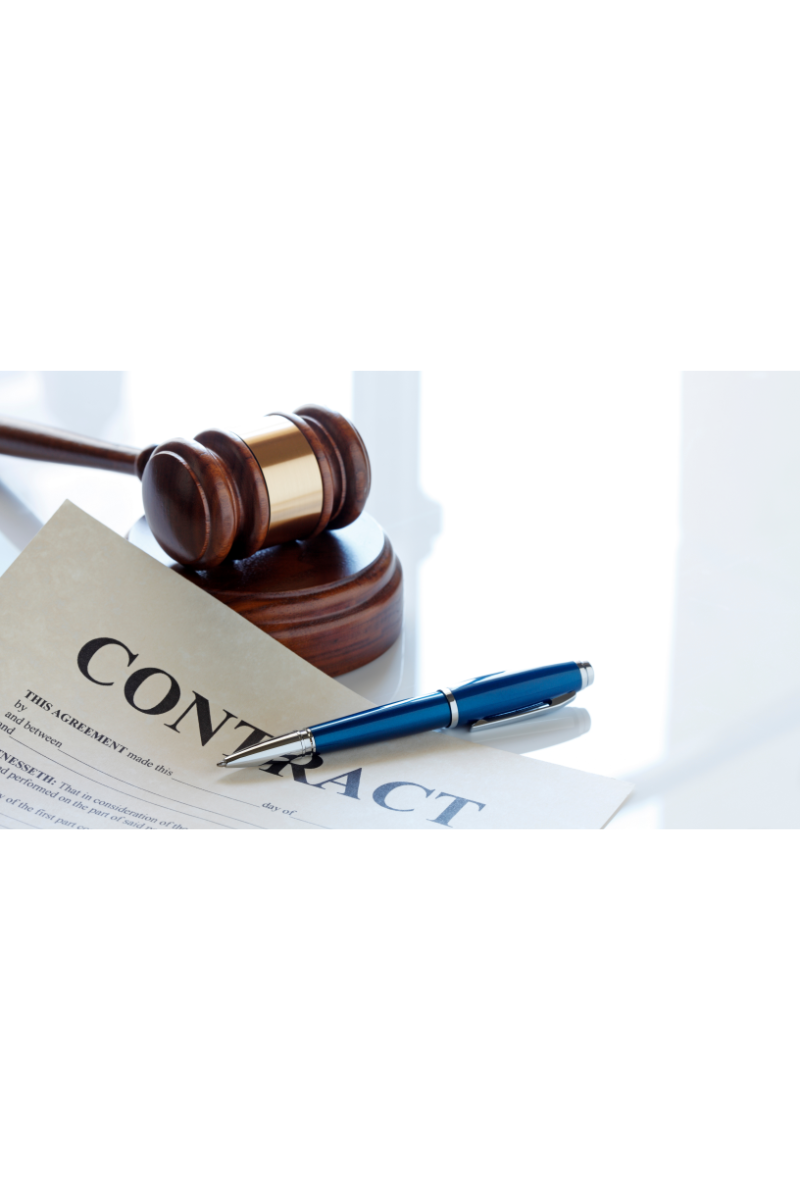Probate and ALL the Things
Jul 26, 2023
“Death is not the end. There remains the litigation over the estate.”
– Ambrose Bierce
What is Probate?
Probate is the legal process of managing someone’s affairs after they die, whether they had a valid Will-including collecting their assets, paying their debts, and distributing any remaining assets.
There are 2 types of Probate:
- Testate
-The Decedent died with a valid Will. The Will provides instructions on how the Decedent’s affairs are to be dealt with.
2. Intestate
-The Decedent died without a valid Will. The Decedent’s affairs are dealt with according to applicable probate laws.
Preparing for Probate
- Step 1
- Request any automatic debits/credits from the Decedent’s bank or other financial accounts are stopped. Some banks will not allow this until after the Personal Representative has been appointed, while others will put a temporary hold on the Decedent’s account if presented with the Death Certificate.
- Step 2
- Locate and secure the Decedent’s assets-including their home(s) or other real property, vehicle (s), cash, and any tangible personal property. It may be prudent to change the locks on the house and avoid driving the Decedent’s vehicle(s). i.e., jewelry, artwork, collectables, etc.
- Step 3
- Obtain at least 10 copies of the original Death Certificate. These can be obtained from the funeral director or directly from the county’s vital records department. Collect and save the Decedent’s mail (even “junk” mail). Forward the Decedent’s mail to the nominated Personal Representative.
- Step 4
- Locate and secure the original copy of the Decedent’s Will and determine who has been nominated as the Personal Representative in the will. *Sometimes a personal representative may be called an Administrator or Executor*
- Make funeral/burial/cremation arrangements as directed in the Will, if applicable.
- Step 5
- Gathering Information about the Decedent-Their legal name and any maiden names, aliases, or nicknames the Decedent was known by date of birth, date of death, and social security number. The address of their primary residence (at the time of death). List all decedent heirs-including their spouse, children, grandchildren, parents, siblings, etc. *also include heirs that died before the decedent. Documentation of or list of all the decedent assets, their approximate value, and documentation regarding any liens or encumbrances.
*Mortgage or auto loans. Contents of Decedent’s purse/wallet-Particularly their driver’s license, credit/debit cards, insurance cards, and cash.
Need assistance Preparing for Probate? Contact Okunade LLP
What is a Will and why is it important?
The will is also known as a last will or last testament. This is a legal document written by the Decedent with instructions on how they would like their affairs to be handled after they die. A Will usually includes instruction for how debts are to be paid, who should receive certain assets, and whom they want to oversee their affairs (known as the Personal Representative).
What if there is no Will?
Without a valid Will, the applicable probate laws determine how decedent’s affairs will be taken. The Personal Representative is obligated, by law, to abide by the terms of the Will and/or the applicable probate laws, regardless of what the Decedent wanted or even what the Decedent may have said prior to their death.
Why is it important to have a Will?
After someone dies, their Will becomes the go-to for how their affairs will be handled.
Can I change someone else’s Will?
The terms of a Will can only be changed via a written amendment to the existing Will (called a codicil) or an entirely new Will, which the Decedent and two witnesses have signed.
Requirements for a Valid Will:
- The testator must be at least 18 years old. “Testator” is the term used for the person for whom the Will has been written. It must be signed and dated by the testator.
- A handwritten Will is known as a “Holographic Will” and is valid if it is handwritten, signed, and dated by the testator. Holographic Wills do not need to be accurate and binding.
- It must be signed and dated by two witnesses who are not beneficiaries of the Will. The witnesses must be able to attest that the testator was sufficiently competent (of sound mind and memory) and signed the Will freely and voluntarily. i.e., people who will not inherit from the testator.
- Though not a requirement, it is prudent for the testator to include a “Self-Proving Affidavit” with the Will, signed by the testator, both witnesses, and a certified notary public. Without a Self-Proving Affidavit, one or both witnesses may be required to testify after the testator’s death that the Will is valid.
What is an Estate and how Personal Representatives play a part?
An Estate is a legal entity that becomes the owner of all assets the Decedent owned prior to their death-including all real estate and personal property. The probate court appoints a Personal Representative with the power to manage the Estate’s affairs.
What is a Personal Representative (sometimes called an Administrator or Executor) is the person who is appointed by the court to manage the Decedent’s Estate and make sure the probate process is completed.
Duties of a Personal Representative:
- Manage the Estate and administer probate in accordance with the Will and/or applicable probate laws for the benefit of the Estate’s heirs and creditors. A person with fiduciary duty is held to a very high standard.
*A fiduciary is a person or organization that acts on behalf of another person or persons, putting their clients’ interests ahead of their own, with a duty to preserve good faith and trust.
- Primary Duties:
- Locate and collect all of the Decedent’s assets
- Discharge the Decedent’s debts
- Distribute the balance of any assets to those who are entitled to the assets.
The role is vital and can be complicated and time-consuming, especially when the Estate is large or complex or when probate is contested. Personal Representatives are encouraged to seek legal advice like Okunade LLP, to ensure they follow the law correctly and protect themselves from personal liability.
Who can become a Personal Representative?
Anyone 21+ years of age can be nominated as a Personal Representative, but specific individuals have priority to be appointed as the Personal Representative, in the following general order:
- A person named in the Decedent’s Will to be the Personal Representative
- The Decedent’s spouse or partner in a civil union
- Other heirs or devisees of the Decedent
*the court ultimately has the final say in who is appointed the Personal Representative
Heirs vs. Devisees
You have probably heard of the term “Heir” many times and have a general understanding of its meaning. An heir is a person who is entitled to inherit from an Estate because they are related to the Decedent.
A devisee, on the other hand, is a person who is entitled to inherit certain assets from the Estate as described in the Decedent’s Will. Devisees do not need to be related to the Decedent, but a person can be both an heir and a devisee.
Probate vs. Non-Probate Assets
In some instances, not all the Decedent’s assets become part of the Estate. Certain asses, such as pa-on-death (POD) accounts, life insurance policies, and trusts, transfer from the Decedent to the named beneficiary(ies) automatically upon the Decedent’s death. These “non-probate assets” are not included in the probate process.
Any asset that does not have a named beneficiary or was not owned in joint tenancy with the Decedent becomes an asset of the Estate and is known as a “probate asset.”
Probate assets must be managed and distributed/transferred by the Personal Representative as instructed in the Will and/or applicable probate laws.
How long does the probate process take?
By law, generally, a probate case must stay open for at least six months before it can be closed. Most probate cases will remain open for at least one year to allow enough time for the Personal Representative to complete their duties correctly. But complex or contested probate cases can be open for several years. This also means that, other than non-probate assets, heirs, and devisees should not expect to receive any Estate assets they are entitled to for at least one year.
Contested Estate
Many probate cases are uncontested, and the Personal Representative can administer the Estate in accordance with the Decedent’s Will and/or applicable law with minor oversight by the court. In case where a Decedent’s Will is contested by any parties, it may be prudent for the Personal Representative to seek legal counsel and assistance from the court in deciding some of these more complicated situations.
Small Estates
In the state of Colorado, if the Decedent’s total net probate assets are less than $74,000 (as of 2022 in the state of Colorado which is adjusted every year) and the Decedent did not own any real property, then the Decedent’s assets can be collected and distributed without the need for opening probate.
The person entitled to the Decedent’s assets (whether by Will or by law) may complete and present a Small Estate Affidavit to the person/entity in possession of the assets (such as a bank). A Small Estate Affidavit should only be used after a thorough investigation of the Estate has been conducted.
The Decedent’s debts have been paid, and all the Decedent’s assets have been located to avoid any repercussions (including criminal and/or civil liability) from using a Small Estate Affidavit prematurely or inappropriately.
Probate can be very confusing and strenuous process. If you or a loved one is going through Probate Arbitration or Litigation, or you need to set yourself or a loved one up for probate, contact Okunade LLP and we can walk with you during the process. Okunade LLP would want you to understand the process and make it so that you understand the process and have a sound peace of mind.






